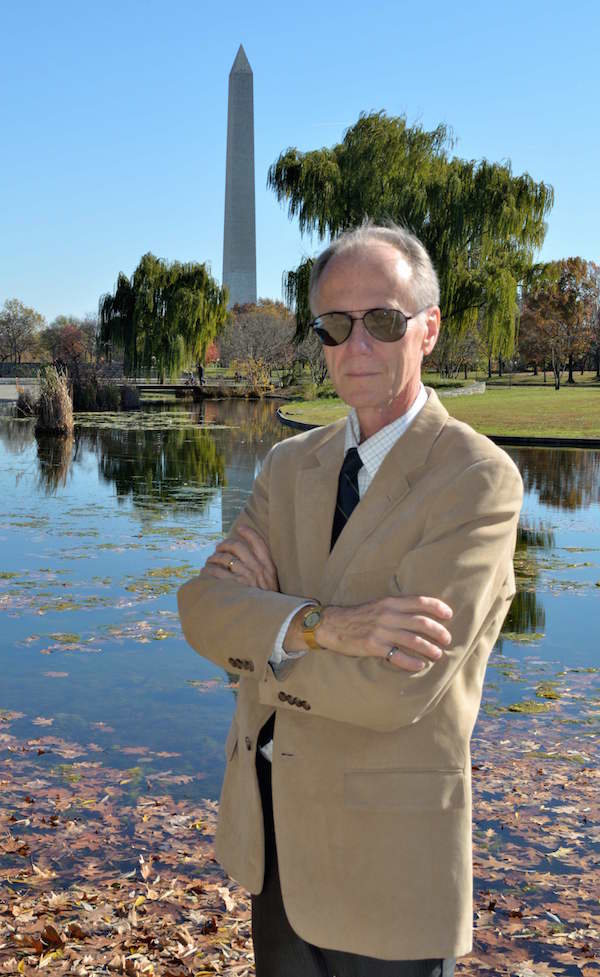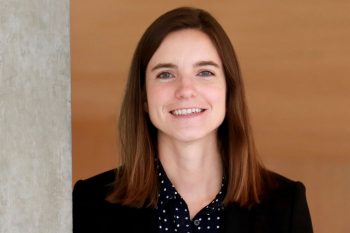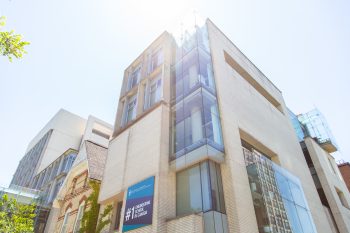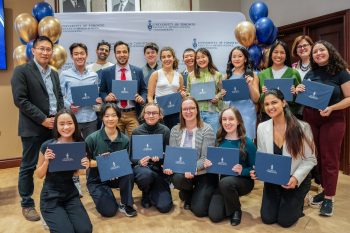Most people are familiar with the United States Department of Homeland Security (DHS) through the evening news.
Others, like University of Toronto engineering alumnus Stephen Selk (ChemE 7T6), actually work there.
The Toronto-born chemical engineer spent 25 years in the petro-chemical industry in Canada before making his way south to Washington, D.C. Since 2013, he has been a supervising program analyst at DHS.
U of T Engineering’s Jamie Hunter spoke with Selk about his anti-terrorism role at the DHS, being taught by Marshall McLuhan at U of T, and how an explosion on Toronto’s waterfront in the 1980s really set his career in motion.
How does a chemical engineer from the University of Toronto end up as a supervising program analyst with the U.S. Department of Homeland Security?
In 2000, I joined the U.S. federal government as an investigator with the United States Chemical Safety and Hazard Investigation Board (CSB). It was a new agency modelled after the National Transportation Safety Board (NTSB). I served as an investigator first, then as an investigator-in-charge and then ended up as the senior line manager for the agency overseeing all of its investigative activities.
About seven years later, Congress mandated that the chemical industry be secured. I was recruited by DHS as the senior policy analyst for the chemical facilities anti-terrorism program. There is a parallel between the work — chemical accidents can produce similar results as intentional acts.
Walk me through a typical day for you at the office.
All of my work is currently associated with anti-terrorism. The first thing that I typically do is look at the previous day’s news to see if there have been any events of interest — paying particular attention to chemical issues. Then I’ll check what may be occurring on Capitol Hill to learn if any Congressional committees have any initiatives and I’ll look at what other federal agencies might be doing.
I do a great deal of reading. A lot of my time is spent reviewing, editing and refining the policy guidelines that others draft.
I might be consulted by an economist who wants some advice on how to calculate the impacts of potential certain scenarios.
I work very closely with attorneys and they are very important in what I do. I might draft regulatory language or write a justification for regulatory language and sit down and perfect it with them, whether it’s with attorneys in the Office of General Council or others who work within the policy group.
What did you do for a living prior to your stint as a consulting engineer with Engineering Systems Inc.?
I worked for 25 years designing, building and operating petro-chemical plants. Along that pathway I became a registered consulting engineering in Ontario. The whole explosion business started for me when there was a fatal explosion at the waterfront in Toronto. It was off Commissioners Street in the mid-1980s. At that time it was still an industrial area down there. The fire marshal, the police and the coroner investigated. I basically got involved because I didn’t think the police and fire marshal had the skills to reconstruct such a complex event.
Afterwards, people around North America (insurance companies, attorneys) started to retain me to investigate heavy industry explosions.
How do you apply your engineering background to your current role at Homeland Security?
I don’t perform engineering calculations myself anymore, but my engineering background is vital to what I do. I have a large role in specifying how others make calculations and the risk assessment methodologies DHS uses.
For example, I might draft policy guidelines that describe how chemical engineers go about determining if a certain chemical can be used to make an improvised explosive device or if a certain product can be used as a precursor for making a chemical weapon.
I also advise on methodology for estimating how large a hypothetical explosion might be and how feasible it would be to create. I’m in regular communication with chemical and mechanical engineers who are asking me technical questions and I have to approve their work.
Over the years, you’ve likely seen some really horrible and fatal chemical accidents. Has it become easier over the years to witness such horrific events?
It never really bothered me. I didn’t mind attending autopsies — I found them interesting and pertinent. What I found more difficult was dealing with survivors who were friends and colleagues of the victims, and of course the families. They really suffer and they are still there — you have to interact with them. Those wounds take a long time to heal. But you develop empathy over time that can help you to comfort people. That is a skill that can be developed.
What interests/inspires you the most about your career?
I enjoy listening to stakeholders, gathering information from the intelligence community, and consulting with other experts to formulate policies. I really enjoy the intellect of the people I liaise with.
What advice do you have for future engineers who may want to follow in your footsteps?
I’m a forensic engineer and a policy maker. If you can’t write, you can’t do either of those jobs. Engineers typically get a very narrow education, and I’ve seen many careers hindered by people who never managed to develop the ability to write well.
I think you are the first engineer who has ever stressed a point of developing writing skills.
Well, individuals will go farther in their careers if they read broadly and learn to write well.
Finally, do you have a favourite memory of your time at U of T?
When I attended U of T Engineering, students were given the opportunity to take one humanities course per term. One year, I took a full course taught by Marshall McLuhan. It was a very small class — so small that we would often meet in his office instead of a classroom. He was at the height of his popularity at the time. I expected not to be admitted into the class, but I was. What an experience!
His course allowed me to think about language and semantics. He was a master of the one-liner and could make his points with brilliant snippets of language. He definitely inspired me. The point is: make use of the resources the University has to offer.



